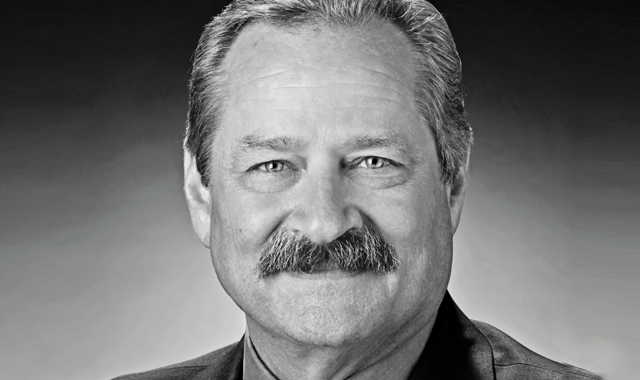Whip Mix Q&A delves into functionality of soft denture liner
Dental Lab Products conducted a quick 10-question Q&A with Craig Pickett, Dental Technical Support Manager at WhipMix. Discussion revolved around the company’s removable soft denture line and its benefits to the practitioner.

Dental Lab Products conducted a quick 10-question Q&A with Craig Pickett, Dental Technical Support Manager at WhipMix. Discussion revolved around the company’s removable soft denture line and its benefits to the practitioner.
1. Whip Mix is mostly known as a fixed restorative product company with some model and die products, as well. But you have a new removable product called PREFERENCE Soft Denture Liner. What made Whip Mix enter the removables market?
While Whip Mix has produced gypsum products for the FIXED side of our industry for 95 years, the acquisition of the Hanau Company from Teledyne brought us the Wide View Articulator, Varsity Flasks, the famous Alcohol Torch and several other removable-type products. The support of these products, combined with the rapid growth and demand for removable solutions in our industry, helped us take another look at products that would be beneficial to removable patients, laboratories and doctors.
Related link: Whip Mix offers efficient 3D printer
2. What kind of a material is PREFERENCE?
PREFERENCE Soft Denture Liner is an RTV (room-temperature vulcanizing) silicone that began life on the medical side of health care. We have re-purposed the material and passed it through the FDA and Health Canada for authorization for intraoral use.
3. What do you think sets PREFERENCE apart from similar products on the market?
The best answer is longevity. Most of the current soft liners-either on the clinical or laboratory side-last only one or two years and then need to be replaced. PREFERENCE will continue to be of service long past that point.
4. Why is this product beneficial for the laboratory, doctor and patient?
It reduces the failure rates associated with other liners. Peeling, bacterial growth and hardening are all issues the patient, doctor and laboratory deal with. PREFERENCE succeeds in these areas when others do not. When the liner is used on stable patients diagnosed for a soft liner, the resulting success is definitely a benefit for the entire workflow.
Related link: Did you see this Innovator Profile on Whip Mix?
5. Two factors that are very different for this material are the cure time and the pressure needed, which are longer and higher, respectively, than current materials. Don’t these two factors detract from PREFERENCE?
Some might say these factors are “inconvenient”; however, the increase of pressure from the standard 20 psi to 80 psi and the length of cure time at 14 hours produce a better product. Ask the patient: Do you want your denture back this afternoon but you’ll need to come back in a year, or get it back tomorrow morning and don’t come back for three to five years? We don’t think added life and cleanliness makes the extra wait time a detractor. It is just a shift in the current paradigm for patient, dentist and lab.
6. Could a dentist use this material for a reline?
The material could be used by the dentist; however, it is not a chairside reline material. The dentist would have to process the PREFERENCE just as the laboratory would.
7. For how long has the material been tested?
The material has been in testing for nearly 10 years with tremendous success among patients who otherwise have had unsuccessful dentures. This material has helped restore many smiles.
8. Can PREFERENCE Soft Denture Liner be used on the new CAD/CAM Dentures?
Because the current CAD/CAM dentures all have denture bases that are methal methacrylate, PREFERENCE can be used with them as a reline material.
Related link: What denture wearers really think of dentures
9. Can the lab try this material out first before committing to taking it on as a product?
There is a trial kit of PREFERENCE Soft Denture Liner material available that will give you the necessary materials not already in the laboratory. This kit can be seen on our website at whipmix.com. Additionally, the user must have a pressure pot that reaches 80 psi-we have programs in place for obtaining one through your dealer if you do not have one. Attempting to cure at less pressure will not produce the desired result.
10. What can we expect from Whip Mix for the rest of 2015 and into the future?
We are already on the move toward digital with 3Shape and Roland DGA products, and you will continue to see more in the area of digital printing technology. We will also be looking at more clinical products and products that bridge the gap from clinical to laboratory. If you think about it, Whip Mix has been moving into the future for the last 95 years. Although dentistry has been analog up until now, there have been many changes we have responded to throughout the years with new and inventive laboratory and clinical products. We will continue to provide forward thinking products, so that we can remain “Your Kentucky Friends.”
Product Bites – November 10, 2023
November 10th 2023The weekly new products podcast from Dental Products Report is back. With a quick look at all of the newest dental product launches, Product Bites makes sure you don't miss the next innovation for your practice. This week's Product Bites podcast features new launches from Amann Girrbach, DMG, Pac-Dent, and ASI Dental Specialties. [4 Minutes]